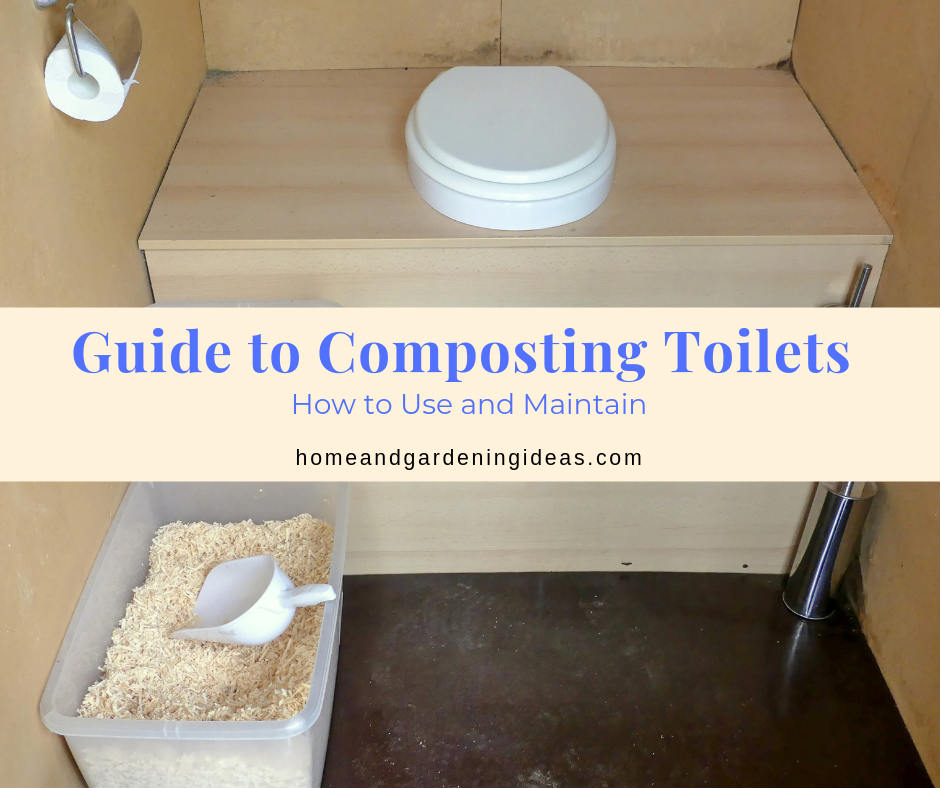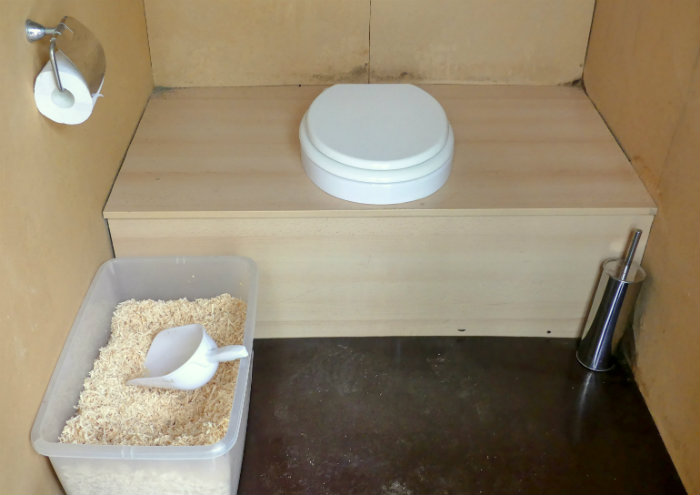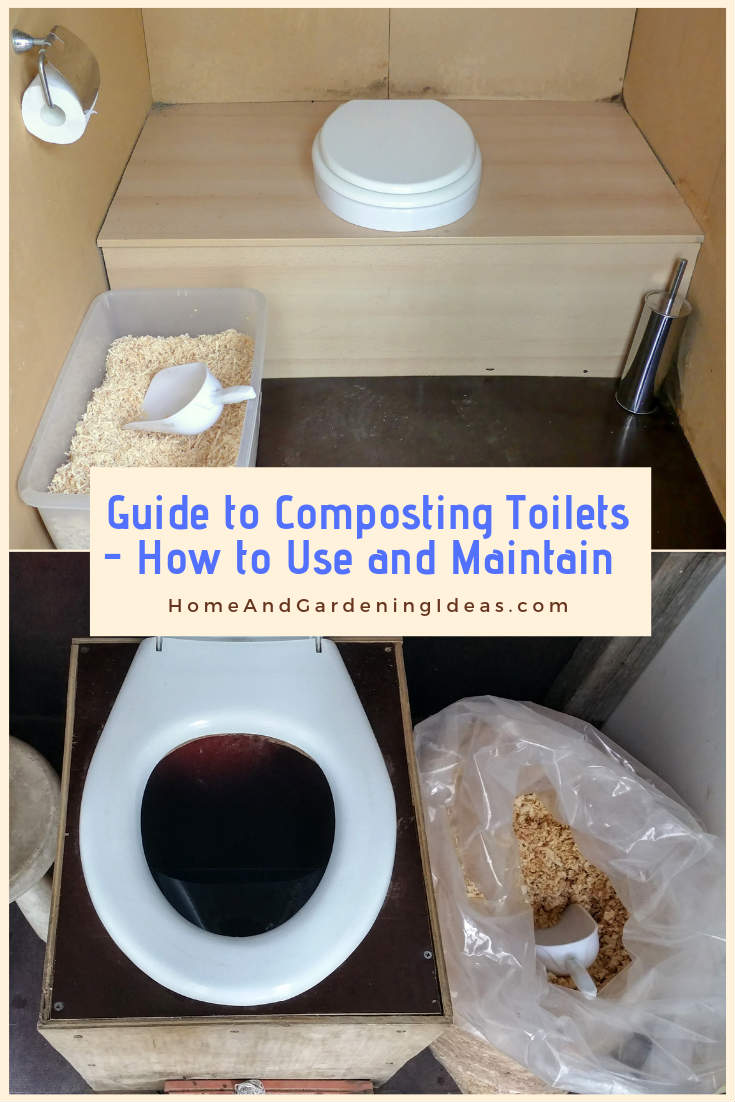Composting Toilets: Your Guide to Off The Grid Toilets
Moving off the grid means you have to think and have plans for things that you don’t need to consider when you live in the town. Going off the grid means you’re disconnecting yourself from the municipal sewage system, and that might be something you didn’t even consider. Sewage is something that most people forget about, but now, you have to look at composting toilets and other off-grid toilet options.
Understanding composting toilets helps if you’re also worried about the grid going down. That would mean no more plumbing services, and it might get stinky!
Modern toilets mean that you poop and urinate in a bowl that uses good water to flush the waste down a series of pipes. Finally, it reaches the treatment plants where massive amounts of chemicals are used to sanitize the waste. Then, it’s resent through the plumbing system.
So, when you go off the grid, you’re removing yourself from this system. Now, you have to consider a long-term toilet option. Composting toilets are the most popular pick.
The Benefits of Composting Toilets
You’ll find several choices for off-the-grid sewage, so why should you pick a composting toilet? A few benefits include:
- You don’t need water for flushing, so it reduces water consumption.
- It is suited for new construction at remote sites.
- They have very low power consumption.
- It removes the necessity of the transportation of wastes for treatment and disposal.
- Kitchen waste can be disposed of in composting toilets.
- You never have to worry about a clogged toilet ever again because there is nothing to flush and no pipes for waste to get stuck.
- You can take the composted human waste and bury it around non-edible plants.
Once fully decomposed, the composted waste is non-toxic and safe to handle. All of the pathogens and viruses typically found in human feces has been killed off by the decomposition process. That leaves behind a nutrient-rich material – compost – that you can use in your landscaping garden or around the base of trees.
It’s important to note that most composting toilet manufacturers do NOT recommend that you put compost toilet into a vegetable garden.
How Does a Composting Toilet Work?
What happens when a deer takes a poop in the wild? It decomposes back into the dirt after a few days. Waste, whether it’s animal or human waste, decomposes rather fast, and composting toilets take advantage of the nature of fecal matter.
Composting toilets use the natural process that doesn’t require any chemicals and very little water. They have a specific environment that’s designed to promote quick, natural decomposition of human waste. It’s a simple way to turn human waste into something that can be used to improve soil quality and benefiting plants.
Composting toilets use an aerobic process to decompose and process the waste. All you have to use are peat moss and sawdust. These materials absorb the liquid and reduce any odor problems. Some units have a separate waterless urinal that allows a lot of the liquid to skip the composting chamber entirely so that it can evaporate faster.
Then, the microbes get to work, breaking down the waste and destroying what is not beneficial in the waste. It’s the same concept of composting your lawn and garden scraps for the next year, except you’re using human waste.
How Do You Maintain a Composting Toilet?
Maintaining a composting toilet is easy. The most important rule is never to add anything that could kill microbes that are breaking down the waste. So, that means you can’t use cleaning agents or chemicals, such as bleach or ammonia products. Any of these chemicals destroy bacteria, beneficial included.
Also, you can only flush down human excretion and nothing else. You can’t toss medicine down there, such as antibiotics, because they can kill the microbes. If anyone in your family is on antibiotics for longer than six months, they should avoid the composting toilet as well.
DIY vs. Modern Composting Toilets
You can make a simple, compost toilet with just a bucket and a toilet seat lid. Off-gridders can purchase specially-fitted toilet seats that fit over the bucket for comfort. After each use, you add some sawdust into the bucket.
When the bucket is full, you put a toilet seat on a new, clean bucket. That bucket of sawdust and waste goes into a compost pile somewhere on your property. Then, add more sawdust over the waste so that it’s completely covered.
DIY composting toilets are a simple, cheap solution, but they aren’t a perfect solution. You can have problems with flies, and no one wants flies. If you live in a very cold region, the waste might not be able to decompose. Also, you need to have a steady supply of sawdust or carbon material to cover the waste.
So, many off-the-grid residents prefer modern composting toilets. They are pricey, but they have the benefit of converting waste into compost faster. Aso, they have vent hoses, so they’re odorless.
Instead, you use a battery or a hand crack to speed up the composting process. Best of all, you don’t have a bucket of human waste hanging around.
Check the Laws in Your State
While composting toilets are a great idea, make sure it’s legal in your state. Only some states allow compostable toilets. They have to meet the environmental requirements as set by each state are legal in some states. A few states with different composting toilet regulations include:
- Maine
- Pennsylvania
- Oregon
- Massachusetts
- Arkansas
- Colorado
- Florida
- Idaho
- Tennessee
- Illinois
- South Carolina
It’s important to remember that there are no set rules of laws that apply to everyone across the country. Each building code and the standard is set by individual municipalities, states, and counties. You can ask your local zoning board before purchasing.
Give Composting Toilets a Try
Despite what you might think, composting toilets break down human excretion without any odor and effort from you. It’s not like a Port-a-Potty that stinks when sitting outside. Instead, composting toilets are a fantastic way to decompose your waste while reducing water consumption.
 Home and Gardening Ideas At home and Gardening ideas we believe inspiring readers about homesteading, self sufficiency
Home and Gardening Ideas At home and Gardening ideas we believe inspiring readers about homesteading, self sufficiency










One comment
Pingback: Homemade Composting Toilet System